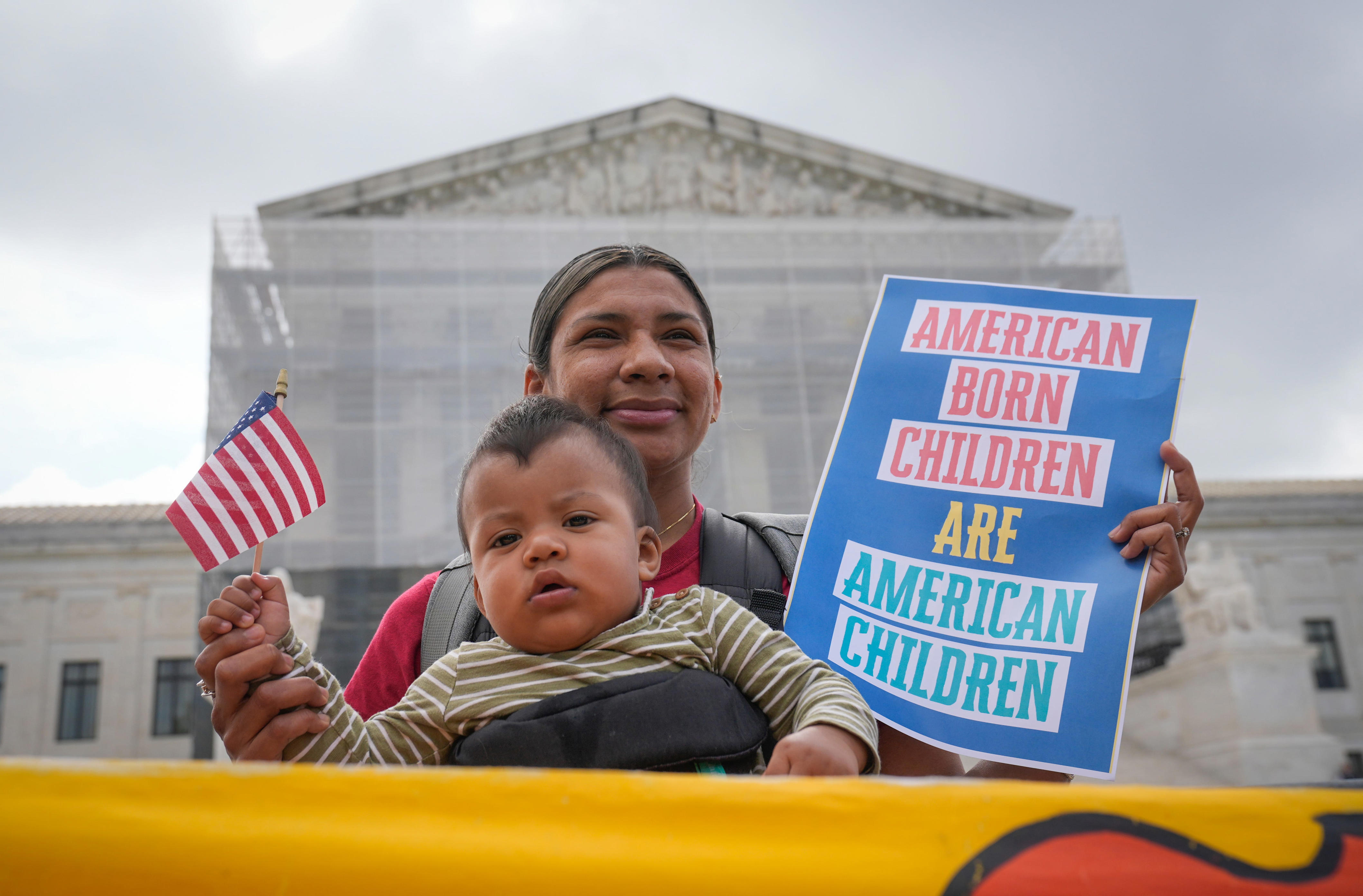Supreme Court Rules in Trump's Favor, Directs Reassessment of Birthright Citizenship
WASHINGTON – An ideologically divided Supreme Court on June 27 said lower courts exceeded their authority when they put nationwide holds on restrictions to birthright citizenship, an at least temporary victory for President Donald Trump that will also make it harder to block other new policies.

In a 6-3 decision, the court said the holds must be narrowed to allow no more relief than necessary.
"The lower courts should determine whether a narrower injunction is appropriate," Justice Amy Coney Barrett wrote for the majority.
Start the day smarter. Get all the news you need in your inbox each morning.
The court's three liberals dissented.
"With the stroke of a pen, the President has made a `solemn mockery' of our Constitution," Justice Sonia Sotomayor wrote. "Rather than stand firm, the Court gives way."
The Trump administration had not asked – and the Supreme Court did not decide – whether the president can permanently deny citizenship to newborns whose parents were in this country illegally or temporarily.
Instead, the Justice Department pursued a more technical – and easier to win – argument that district judges don’t have the power to entirely block presidential actions while they’re being challenged in court.
That’s a setback for the expectant parents, immigrant rights groups and states suing the administration.
And it’s a boost for the administration’s battles in other areas.
The administration is already defending itself in more than 400 challenges to Trump’s sweeping efforts to downsize and reshape the federal government, swiftly deport migrants, end diversity initiatives, impose tariffs and go after adversaries.
How does Trump want to limit birthright citizenship?
The executive order Trump signed his first day back in office directed government agencies not to recognize as citizens anyone born in the United States unless at least one of their parents is a citizen or lawful permanent resident.
That order was particularly bold in giving a new interpretation to the 14th Amendment’s citizenship clause , which says: “All persons born or naturalized in the United States, and subject to the jurisdiction thereof, are citizens of the United States and of the State wherein they reside.”
In an 1898 ruling about the citizenship of a man born in the United States to Chinese parents, the Supreme Court said the 14 th Amendment, “in clear words and in manifest intent, includes the children born, within the territory of the United States.”
And a 1940 law defines citizenship using the terms of the 14 th Amendment.
But Trump argues that phrasing in the constitutional amendment rules out children born to parents who aren’t citizens , because they may feel loyal to a foreign country even if they have to follow U.S. laws while they’re here.
How did the case come before the Supreme Court?
Trump’s order was immediately challenged through multiple lawsuits filed by expectant parents, immigrant rights groups and 22 state attorney generals.
Federal district court judges in Washington state, Massachusetts and Maryland blocked the policy everywhere in the country while it’s being litigated. They said the executive order conflicts with the Constitution, Supreme Court precedent and federal law.
In an emergency appeal, the Trump administration asked the Supreme Court to let the policy go into effect for everyone other than the specific expectant parents named in the lawsuits or, at most, any member of the immigrant rights groups or residents of a state that challenged the policy.
What was Trump's argument?
The administration argues one judge shouldn’t be able to entirely block a federal policy for anyone other than the parties suing. And they say that phenomenon has gotten out of control, pointing to numerous court orders putting the brakes on Trump initiatives.
“If Justice Roberts and the United States Supreme Court do not fix this toxic and unprecedented situation IMMEDIATELY, our Country is in very serious trouble!" Trump said in a March Truth Social post .
Democratic presidents have also complained about nationwide holds on policies issued by one judge. And some Supreme Court justices had also expressed frustration with them.
But during the May oral arguments, the justices struggled with how to restrict nationwide orders, particularly in the case of citizenship rules which have been applied nationally.
This article originally appeared on USA TODAY: In win for Trump, Supreme Court orders courts to reconsider limits on birthright citizenship and other policies
Post a Comment for "Supreme Court Rules in Trump's Favor, Directs Reassessment of Birthright Citizenship"
Post a Comment